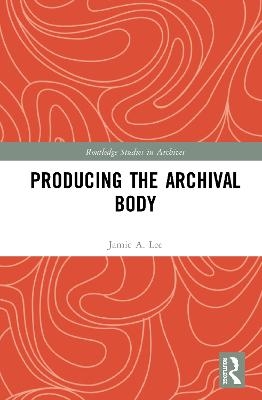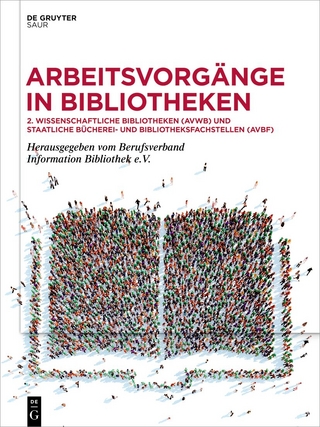
Producing the Archival Body
Seiten
2020
Routledge (Verlag)
978-0-367-18219-9 (ISBN)
Routledge (Verlag)
978-0-367-18219-9 (ISBN)
Producing the Archival Body draws on theoretical and practical research conducted within US and Canadian archives, along with critical and cultural theory, to examine the everyday lived experiences of archivists and records creators that are often overlooked during archival and media production.
Expanding on the author’s previous work, which engaged archival and queer theories to develop the Queer/ed Archival Methodology that intervenes in traditional archival practices, the book invites readers interested in humanistic inquiry to re-consider how archives are defined, understood, deployed, and accessed to produce subjects. Arguing that archives and bodies are mutually constitutive and developing a keen focus on the body and embodiment alongside archival theory, the author introduces new understandings of archival bodies. Contributing to recent disciplinary moves that offer a more transdisciplinary emphasis, Lee interrogates how power circulates and is deployed in archival contexts in order to build critical understandings of how deeply archives influence and shape the production of knowledges and human subjectivities.
Producing the Archival Body will be essential reading for academics and students engaged in the study of archival studies, library and information science, gender and women’s studies, anthropology, history, digital humanities, and media studies. It should also be of great interest to practitioners working in and with archives
Expanding on the author’s previous work, which engaged archival and queer theories to develop the Queer/ed Archival Methodology that intervenes in traditional archival practices, the book invites readers interested in humanistic inquiry to re-consider how archives are defined, understood, deployed, and accessed to produce subjects. Arguing that archives and bodies are mutually constitutive and developing a keen focus on the body and embodiment alongside archival theory, the author introduces new understandings of archival bodies. Contributing to recent disciplinary moves that offer a more transdisciplinary emphasis, Lee interrogates how power circulates and is deployed in archival contexts in order to build critical understandings of how deeply archives influence and shape the production of knowledges and human subjectivities.
Producing the Archival Body will be essential reading for academics and students engaged in the study of archival studies, library and information science, gender and women’s studies, anthropology, history, digital humanities, and media studies. It should also be of great interest to practitioners working in and with archives
Jamie A. Lee is Assistant Professor of Digital Culture, Information, and Society in the School of Information – Arizona’s iSchool – at the University of Arizona, where their research and teaching attend to critical archival theory and methodologies, multimodal media-making contexts, storytelling, and bodies.
Introduction: Producing the Archival Body; Part I: Body Parts; 1. Archival Underpinnings; 2. Time; 3. Bodies; Part II: Bodies in Action; 4. Relational Reciprocity: Bodies As Archives / Archives As Bodies; 5. Bodies Producing Archives Producing Bodies: The Power of Storytelling; CODA: The Moving Body
| Erscheinungsdatum | 15.01.2021 |
|---|---|
| Reihe/Serie | Routledge Studies in Archives |
| Zusatzinfo | 10 Halftones, black and white; 10 Illustrations, black and white |
| Verlagsort | London |
| Sprache | englisch |
| Maße | 156 x 234 mm |
| Gewicht | 390 g |
| Themenwelt | Schulbuch / Wörterbuch ► Lexikon / Chroniken |
| Sozialwissenschaften ► Kommunikation / Medien ► Buchhandel / Bibliothekswesen | |
| Sozialwissenschaften ► Soziologie ► Gender Studies | |
| ISBN-10 | 0-367-18219-X / 036718219X |
| ISBN-13 | 978-0-367-18219-9 / 9780367182199 |
| Zustand | Neuware |
| Informationen gemäß Produktsicherheitsverordnung (GPSR) | |
| Haben Sie eine Frage zum Produkt? |
Mehr entdecken
aus dem Bereich
aus dem Bereich
2. Wissenschaftliche Bibliotheken (AVWB) und Staatliche Bücherei- und …
Buch | Softcover (2024)
De Gruyter Saur (Verlag)
39,95 €


